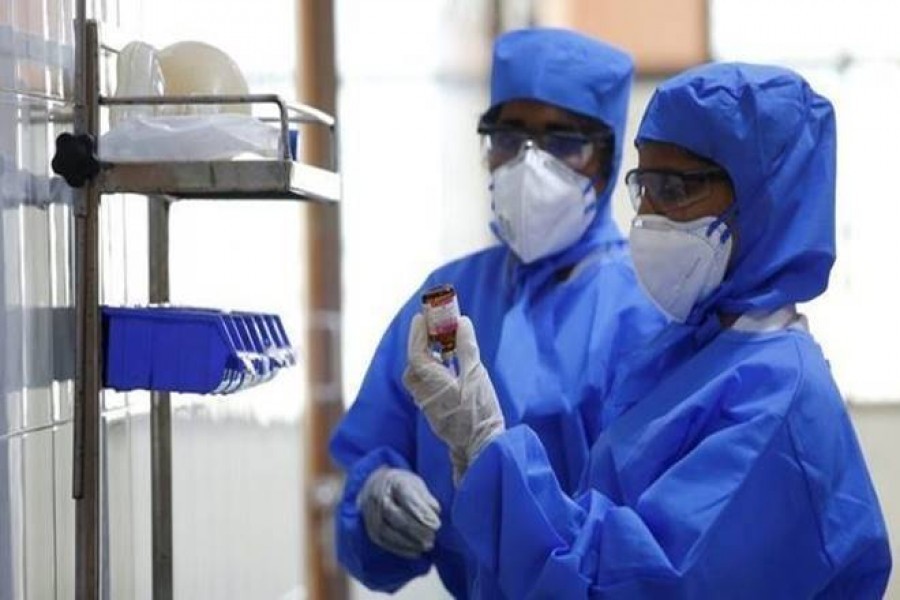The chief scientist of the World Health Organisation (WHO), Soumya Swaminathan, said on Friday (June 18) that the Delta variant of the SARS-Cov-2 virus (Covid-19 virus), first found in India, is turning into a globally dominant variant of the disease. This variant of Covid-19 is known for its high transmissibility. Citing the Office for National Statistics (ONS), BBC reports that till 12 June, one in every 540 persons in Britain was Covid-infected and that the Delta variant of Covid-19 disease was responsible for almost all the cases. Germany's top health officials, too, believe that Delta was rapidly becoming the dominant variant regardless of the increasing rate of vaccination there. In a similar development, Moscow has also witnessed a fresh spike of infection, feared to be the third wave of the pandemic, blamed on the Delta variant of the Covid-19.
What is the situation at home where the Covid-infection showed a rising trend since mid-May following the suspension of the vaccination drive at the end of April after India failed to supply the rest amount of the vaccine doses (AstraZeneca brand from the Serum Institute of India [SII]) to Bangladesh as per the contract reached earlier with the SII?
A study based on genome sequencing of samples from Covid patients conducted at the International Centre for Diarrhoeal Diseases Research, Bangladesh (icddr, b) found that 68 per cent of the participants were infected by the Delta variant of the Covid-19 disease. It is worthwhile to note that the study was carried out between the end of May and the first week of June whereas the Delta-infected cases were first detected in early May. A former chief scientific officer of Bangladesh's Institute of Epidemiology, Disease Control and Research, IEDCR, Dr. Mushtaq Hossain, on the other hand, said that in an earlier study done by his institute, it was found that out of 50 patients tested in Dhaka, 40 were found to carry the Delta variant of the virus. That, in other words, means the infection rate by the Delta variant was 80 per cent. Both the study results point to the fact that Delta, which is also highly transmissible and, reportedly, requires longer hospital care, is now the dominant variant of the Covid-19 disease in Bangladesh.
So far, there is still no clear proof if the existing vaccines, which are being used to combat other variants of the virus, are also equally effective against the Delta variant. However, BBC, referring to Public Health England (PHE)'s latest data reports that a single dose of vaccine reduces a person's chances of catching Covid-19 by 75 per cent. Needless to say, this finding indicates that the vaccine is effective against the Delta variant of the virus, which at the moment dominates Covid-landscape of Britain. And those who received two shots of the vaccine- understandably, it is the Oxford's AstraZeneca brand of the vaccine as Britain is using this serum-the possibility of their being infected by the virus and getting hospitalised as a result is reduced by 90 per cent.
This is undoubtedly a reassuring piece of news from England. Hopefully, other brands of anti-Covid vaccines such as the US's Pfizer, Moderna, Johnson and Johnson or the Chinese and Russian brands are also able to fight the Delta variant. However, we have to wait for more study results to be fully assured of any claim of efficacy regarding the Oxford or other brands of vaccine against the Delta variant of the Covid-19.
But the good news about the vaccine's efficacy against the Delta variant means nothing to the vaccine-deprived people of the world. With the resumption of vaccination programme on Saturday (June 19) with the Chinese brand, Sinopharm, we may hope to combat the Delta variant which now reportedly dominates the Bangladesh scene. Again, efficacy of the Sinopharm, or other vaccines against this new fourth (Delta) variant of the Covid-19 will now be put to field test. Let us see how things turn out.
Whatever the case, the best protection against any form of the virus is still observance of the health guidelines such as maintaining social distance, wearing facemask and sanitising hands. But it seems common people are averse to these protective measures against the pandemic. And that is concerning.


